Discover The Jim Rutt Show
The Jim Rutt Show

363 Episodes
Reverse
Jim talks with Timothy Clancy about the Israel-Hamas War following Hamas's October 7 attack on Israel. They discuss the sorting-out period that follows the end of an empire, Jerusalem as a perpetual battleground, 3 questions for understanding conflict, a missed opportunity for Jordan to take back the West Bank, what happened on October 7, recovering the sense of security, the scale of the atrocity, strategic limitations of bloodlust, unconditional surrender, grievance, pulling weeds vs addressing root grievances, the civil war between Fatah and Hamas, the story behind Yasser Arafat's rejection of the potential settlement between the Palestine Liberation Organization & Israel, ways to invade a city, the increasing likelihood of a ceasefire, the difference between conventional & asymmetric warfare, the importance of contingencies & constraints, the arms supply from the U.S. to Israel, the increase of Western support for Hamas, alignment with grievance, the role of Indian & Bangladeshi bot farms in increasing Palestine-Israel tensions, the colonial narrative, a system for analyzing grievances, Timothy's prediction for long-term trajectory, contingent factors of the rise of Iran, employment as a cure for grievance, Gaza as a feral city, and much more.
Episode Transcript
JRS Currents 057: Timothy Clancy on Russia's Mid-Game
START Researcher Spotlight: Timothy Clancy
"Dynamics of Atrocity Scripts in Conflict," by Timothy Clancy
"Theory of an Emerging-State Actor: The Islamic State of Iraq and Syria (ISIS) Case," by Timothy Clancy
Timothy Clancy is an Assistant Research Scientist at START specializing in studying wicked mess problems, including violence and instability, as complex systems. Current research topics include understanding violent radicalization as a system, the terror contagion hypothesis for public mass killings, the emerging-state actor hypothesis for asymmetric and irregular warfare conflicts, and advancing methods for modeling social complexity through computer simulations integrated with AI.
Jim talks with Sergey Kuprienko, CEO and co-founder of Swarmer, about drone warfare in the Russo-Ukrainian War. They discuss the parallels between drones in Ukraine & the advance in aviation during World War I, the history of drone warfare in the conflict, Russia's electronic countermeasures, the niche Swarmer occupies, autonomy for coordinated robots, pilots vs operators, swarm vs swarm warfare, AI vs human decision-making, greener warfare, distribution of ability among drone pilots, current production rates, the kill ratio, Russia's brute-force industrial capacity, the mix of symbolic AI vs machine learning, working with D3 Capital, collective intelligence, computing hardware, the Russian use of smoke as a countermeasure, cybersecurity, extra-military applications, and much more.
Episode Transcript
JRS EP 244 - Samo Burja on Lessons from the Russo-Ukrainian War
"Don't Bring a Patriot to a Drone Fight—Bring Fighter UAVs Instead," by Paul Maxwell
Sergey Kuprienko is the CEO and co-founder of Swarmer, a software company for drone software.
Jim and A.M. Hickman trade stories about the pleasures and tribulations of hitchhiking. They discuss Andy & his wife's recent hitchhiking honeymoon, how he started hitchhiking as a teenager, growing up in Utica, New York, the Adirondacks, multi-generational itchy-foot syndrome, "hobo college," Jim's earliest hitchhiking experience, hitchhiking on the East Coast, crazy happenings, fertilized chicken eggs, a four-year-old driver, psychoactive chemicals, a shift against hitchhiking in the Eighties, post-Covid leeriness, the decline in hitchhiking, finding odd jobs, the low cost of living on the road, Mormon country, ultra-light gear, the diversity of America's traveling homeless, sleeping in a Honda Civic on a freight train, rescuing a fourteen-year-old hitchhiker in Eureka, California, and much more.
Episode Transcript
Hickman's Hinterlands (Substack)
A.M. Hickman is an itinerant geographer from the foothills of the Adirondack Mountains. He writes on Substack at Hickman's Hinterlands.
Jim talks with Bob Levy about the Second Amendment, the right to keep and bear arms, in the Supreme Court. They discuss Bob's late-career move to law, never being too old to reinvent yourself, how Bob got involved in a pivotal Supreme Court case in establishing the modern interpretation of the Second Amendment, the text of the Second Amendment, District of Columbia v. Heller, United States v. Miller, United States v. Emerson, the scholarship around framing the Second Amendment as an individual right, the state of play of gun control in D.C. at the time, the handgun ban, handguns in the home for self-defense, the NRA case & a rookie error by the NRA's lawyers, legal strategy in the Heller case, sufficient vs necessary conditions for exercising the right, the meaning of "well-regulated," the specific holdings in Heller, the meaning of fundamental rights, Breyer's dissent against Scalia's opinion, the rational basis standard, McDonald v. City of Chicago, New York State Rifle & Pistol Association, Inc. v. Bruen, "good moral character," the murky precedent of striking down laws that weren't present during the framing era, a strict scrutiny approach, speculations on the future of Second Amendment jurisprudence, ghost guns, and much more.
Episode Transcript
The Dirty Dozen: How Twelve Supreme Court Cases Radically Expanded Government and Eroded Freedom, by Robert Levy & William Mellor
"The Peculiar Story of United States v. Miller," by Brian L. Frye
Bob Levy was, for 14 years, chairman of the board of directors at the Cato Institute. He is now chairman emeritus. Bob joined Cato as senior fellow in constitutional studies in 1997 after 25 years in business. The Institute’s Robert A. Levy Center for Constitutional Studies is named in his honor. He has also served on boards of the Federalist Society, the Foundation for Government Accountability, and the Institute for Justice. Bob received his PhD in business from the American University in 1966, then founded CDA Investment Technologies, a major provider of investment information and software. At age 50, after leaving CDA in 1991, Bob went to George Mason law school, where he was chief articles editor of the law review and class valedictorian. He received his JD degree in 1994. The next two years he clerked for Judge Royce Lamberth on the US District Court and Judge Douglas Ginsburg on the US Court of Appeals, both in Washington, DC.
Jim talks with Samo Burja about lessons military strategists should take from the Russo-Ukrainian War so far. They discuss why military stockpiles are less useful than previously assumed, the scaling up of drone production, the impossibility of envisioning what tech will be needed, 4 factors that caused Russian miscalculation, offensive vs defensive dominance, the possibility of a U.S. military draft, the changing role of conscription, the high average age in Russia & Ukraine, the rapid evolution of drones, a comparison between drone pilots & snipers, the muted relevance of the air force, empty symbols of military strength, the progress of autonomous drones, the reevaluation of civilian casualties with changing tech, the information complexity of drone warfare, the importance of artillery, the need for a new George Marshall figure in the U.S., a war of production, how the Ukraine War can inform the Taiwan situation, the idea of an amphibious assault, autonomous submersible vehicles, and much more.
Episode Transcript
JRS EP 243 - Yaroslav Trofimov on Ukraine’s War of Independence
JRS EP 221 - George Hotz on Open-Source Driving Assistance
Samo Burja is the founder and President of Bismarck Analysis, a consulting firm that specializes in institutional analysis for clients in North America and Europe. Bismarck uses the foundational sociological research that Samo and his team have conducted over the past decade to deliver unique insights to clients about institutional design and strategy. Samo’s studies focus on the social and material technologies that provide the foundation for healthy human societies, with an eye to engineering and restoring the structures that produce functional institutions. He has authored articles and papers on his findings. His manuscript, Great Founder Theory, is available online. He is also a Research Fellow at the Long Now Foundation and Senior Research Fellow in Political Science at the Foresight Institute. Samo has spoken about his findings at the World Economic Forum at Davos, Y Combinator’s YC 120 conference, the Reboot American Innovation conference in Washington, D.C., and elsewhere. He spends most of his time in California and his native Slovenia.
Jim talks with Yaroslav Trofimov about his new book Our Enemies Will Vanish: The Russian Invasion and Ukraine's War of Independence. They discuss the reporting that went into the book, Yaroslav's connection to Ukraine, a brief history of Ukraine, the Golden Horde's conquering of modern-day Ukraine, Russia's inheritance of the Tatar-Mongol state, Ukraine's brief period of independence at the end of WWI, the complexity of Ukrainian identity, the Orange Revolution, the Maidan Revolution & its outcome, a period of low-intensity conflict, what caused full-scale war to break out, how Putin drank his own kool-aid, his expectation that there would be little resistance, the widespread underestimation of Ukraine, Russia's initial thrusts, the pivotal battle at Hostomel Airfields, the Bucha massacre, the negotiations in Istanbul, the siege at Mariupol, what made the Ukrainians so tough, the role of Zelensky in inspiring the resistance & rallying international support, the Russian drought, the counter-offensives of August-September 2022, the Republican party's stalling of aid to Ukraine, the arguments for supporting aid, Yaroslav's prognosis, possible endgames, the likelihood of a frozen conflict, and much more.
Episode Transcript
Our Enemies Will Vanish: The Russian Invasion and Ukraine's War of Independence, by Yaroslav Trofimov
No Country for Love, by Yaroslav Trofimov
Yaroslav Trofimov is the author of three books of narrative non-fiction and one novel. He has worked around the world as a foreign correspondent of The Wall Street Journal since 1999, and has served as the newspaper’s chief foreign-affairs correspondent since 2018. Born in Kyiv, Ukraine, he was a finalist for the Pulitzer Prize in international reporting in 2023, for his work on Ukraine, and in 2022, for his work on Afghanistan. His honors include an Overseas Press Club award for coverage of India as well as the Washington Institute gold medal for the best book on the Middle East. His latest non-fiction book, Our Enemies Will Vanish, was a finalist of the 2024 Orwell Prize.
Jim talks with Magatte Wade about the ideas in her book The Heart of A Cheetah: How We Have Been Lied to about African Poverty, and What That Means for Human Flourishing. They discuss the origins of the book's title, the issue with aid, George Ayittey's "cheetahs vs hippos" frame, a leapfrogging strategy, Magatte's childhood in Senegal, recognizing lies about African poverty, business school in France, nine months in Columbus, Indiana, the meaning of African prosperity, criticizing by creating, creating a soft drink company around traditional African ingredients, rules & regulations of forming a business in Senegal, free enterprise in pre-colonial Africa, why fully rejecting the West is a wrong fork, special economic zones, Africa as the greatest victim of socialism, supporting African entrepreneurs, possible results of Africa's coming population boom, charter cities, special economic zones, and much more.
Episode Transcript
The Heart of A Cheetah: How We Have Been Lied to about African Poverty, and What That Means for Human Flourishing, by Magatte Wade
Magatte Wade (website)
Africa's Bright Future (Substack)
Magatte Wade is the Director of the Center for African Prosperity at Atlas Network, the leading organization of African free-market think tanks. She was listed as a Forbes “20 Youngest Power Women in Africa,” a Young Global Leader by the World Economic Forum, and a TED Global Africa Fellow. Magatte's passion for the role of free markets in overcoming poverty and the power of enterprise to tackle social issues and promote entrepreneurial education make her a sought-after speaker and thought leader at major conferences, events, and universities around the world.
Jim talks with Tor Nørretranders about the ideas in his 1991 book The User Illusion: Cutting Consciousness Down to Size. They discuss the dialogue between Niels Bohr and Albert Einstein, defining consciousness, primary vs extended consciousness, the origins of the user illusion in computer interface design, the mind as an attempt to create a relevant myth, measuring the human mind in terms of information theory, consciousness as a story of reduction & compression, the physics of information, Maxwell's demon, I & me, Benjamin Libet's experiments on the delay of consciousness, being the spectator of our own acts, delayed auditory feedback, the veto theory, moving free will to the "me," Robert Sapolsky's arguments against free will, the reality of emergence, exformation, a simple translation of The Iliad, Julian Jaynes's theory of the origins of consciousness, why modern lives have less information, the problem with a subtractive approach to happiness, and much more.
Episode Transcript
The User Illusion: Cutting Consciousness Down to Size, by Tor Nørretranders
JRS EP203 - Robert Sapolsky on Life Without Free Will
"The Hedgehog's Song," by The Incredible String Band
The Origin of Consciousness in the Breakdown of the Bicameral Mind, by Julian Jaynes
Tor Nørretranders is an independent author, thinker and speaker based in Denmark, serving an international audience. Generally seen as a leading science communicator of Denmark, Tor has involved himself in numerous activities in the public arena, from newspaper journalism through books and magazine articles to hosting and producing television shows on science and the general world view. His lecture tours, gathering tens of thousands of people, have been major events on the Scandinavian scene.
Jim talks with Stuart Kauffman about cosmology, fundamental physics, and the nature of dark matter, dark energy, and inflation. They discuss how Stuart moved into these fields, the Michelson-Morley experiment, special relativity, cosmic background radiation, the new period of precision cosmology, dark energy, why the universe is expanding faster, the Hubble tension, the baryonic Tully-Fisher relation, entanglement, nonlocality & whether it is fundamental, quantum gravity, why particle physics is collectively autocatalytic, stepping through the delay hypothesis, Planck time, the past hypothesis problem, the life ensemble, dark matter as a Ricci soliton, requirements for the rate of inflation, why cold dark matter may explain the cosmic web, Mach's principle, and much more.
Episode Transcript
JRS EP18 - Stuart Kauffman on Complexity, Biology & T.A.P.
JRS EP 227 - Stuart Kauffman on the Emergence of Life
JRS EP5 - Lee Smolin – Quantum Foundations and Einstein’s Unfinished Revolution
Are Dark Matter, Dark Energy, and Inflation a Construction of Space-Time By Matter?", by Stuart Kauffman
"Did the Universe Construct Itself?", by Stuart Kauffman & Stephen Guerin
"On Quantum Gravity If Non-Locality Is Fundamental," by Stuart Kauffman
"Dark Matter as a Ricci Soliton," by Stuart Marongwe & Stuart Kauffman
Stuart Alan Kauffman is an American theoretical biologist and complex systems researcher who studies the origin of life on Earth. Kauffman graduated from Dartmouth in 1960, was awarded the BA (Hons) by Oxford University (where he was a Marshall Scholar) in 1963, and completed a medical degree (MD) at the University of California, San Francisco in 1968. After completing his residency in Emergency Medicine, he moved into developmental genetics of the fruit fly, holding appointments first at the University of Chicago, then at the University of Pennsylvania, where he rose to Professor of Biochemistry and Biophysics. Kauffman held a MacArthur Fellowship from 1987–1992.
Jim talks with Alex Fink about his company Otherweb, which uses AI to filter out fake news and create a more reliable news ecosystem. They discuss how Alex came to care about this problem, the decline of news media, how advertising wrecked the internet, the idea of an info agent, Otherweb's curation engine, information filtering systems, unhooking the internet from advertising, the fight between AdBlock and Facebook, the decision to disinclude paywalled websites, economic tradeoffs of paywalling, AI in movie production, money-on-money return, initial results of the printing press, watermarking images, fair witnesses, how porn has driven internet innovation, catering to the seven deadly sins, social media addiction, binding the future of the company, public benefit corporations, the stewardship capital model, the crowdfunding process, and much more.
Episode Transcript
Otherweb
The Other Web (Podcast)
Alex Fink is a Tech Executive, Silicon Valley Expat, and the Founder and CEO of the Otherweb, a Public Benefit Corporation that uses AI to help people read news and commentary, listen to podcasts and search the web without paywalls, clickbait, ads, autoplaying videos, affiliate links, or any other junk. The Otherweb is available as an app (ios and android), a website, a newsletter, or a standalone browser extension.
Jim talks with Sam Sammane about the ideas in his new book The Singularity of Hope: Humanity's Role in an AI-Dominated Future. They discuss the hype around generative AI, obstacles to AGI, reinforcement learning, intuition & emotion, human-AI augmentation, rules of thumb, the plausibility of the brain as a quantum computer, Jim's ScriptHelper project, machine-like jobs that will likely be automated, the age of retraining, using AI to self-augment, the digital proletariat, a compassionate approach to rethinking society, a priesthood for investing, AI-augmented drug discovery, a major uplift in education, love as an engine of learning, the danger of considering AI in education as cheating, personal info agents, advances in tuning of LLMs, brain-computer interfaces, roads toward AGI, the pure AI singularity, the limits of our understanding of intelligence, collecting wisdom, and much more.
Episode Transcript
The Singularity of Hope: Humanity's Role in an AI-Dominated Future, by Sam Sammane
Sam Sammane (website)
OpenCog Foundation
TheoSym
JRS EP 222 - Trent McConaghy on AI & Brain-Computer Interface Accelerationism (bci/acc)
Sam Sammane envisions a world in which rapid advancements in AI and technology have been harnessed for the greater good, creating a new age of global prosperity. He is a seasoned entrepreneur with multiple successful exits and an academician with a rich blend of expertise in applied physics, digital circuit design, nanotechnology, formal methods, life science, and business. Sam’s book The Singularity of Hope reflects his experiences and thoughts on the evolving relationship between AI, the economy, and the workforce.
Jim talks with Simon DeDeo about their wager concerning the likelihood of civil violence and mass killings in America in the next decade. They discuss the terms of the wager, the appropriate orders of magnitude, Alex Garland's Civil War, the American readiness to use violence, honor cultures, the movement from violence to political violence, industrial mass murder, polarization, the one-dimensionality of current elites, basins of attraction, statistical distributions of violence, Rene Girard's theory of mimetic desire, measuring political distance, the constant motion of contemporary American political views, tribalization around red-blue politics, door-holding & just-so stories, sexual signaling, the unreality of woke debates, accumulating factors that could lead to a brushfire, gun rights, the dilettantism of extremist groups, 3 specific scenarios of inciting conflicts, making sense of a post-ideological world, the question of who rules, and much more.
Episode Transcript
JRS EP 1 - Simon DeDeo on the Evolution of Consciousness
JRS Currents 001: Simon DeDeo on University Censorship
JRS Currents 028: Simon DeDeo on Explaining Explanation
JRS EP 202 - Neil Howe on the Fourth Turning
JRS EP 190 - Peter Turchin on Cliodynamics and End Times
JRS EP 104 - Joe Henrich on WEIRD People
JRS EP 230 - James Lindsay on a National Divorce
JRS Currents 058: John Robb on Russia-Ukraine Outcomes
Simon DeDeo is an Assistant Professor at Carnegie Mellon University in the Department of Social and Decision Sciences, and External Professor at the Santa Fe Institute. He is also affiliated with the Cognitive Science program at Indiana University, where he runs the Laboratory for Social Minds. For three years, from 2010 to 2013, he was an Omidyar Fellow at the Santa Fe Institute. He and his collaborators study how people use words and signals, and the ideas they represent, to create a world. They have studied a diverse set of systems that includes the French Revolution, the courtrooms of Victorian London, the research strategies of Charles Darwin, the insurgency of modern-day Afghanistan, the emergent bureaucracy of Wikipedia, the creation of power hierarchies among the social animals, and the collusions and conspiracies of petrol stations in the American Midwest. They combine data from the contemporary world, archives from the deep past, statistical tools from cosmology, and models of human cognition from Bayesian reasoning and information theory to understand how cultures grow, flourish, innovate, and evolve.
Jim talks with Gregg Henriques about his take on the free will versus determinism debate. They discuss the importance of definitions, the enlightenment gap, the complexity lens, why "will" is confusing & choice is a better referent, free choice vs determinism, levels of analysis, description vs explanation, freedom as description, the tree of knowledge system, ontological jumps in evolutionary complexification, a stack of emergences, systems of justification, the concept of agency, layered agency, animal decision-making, Mind2 consciousness, freedom as recursive self-awareness, the emergence of personhood, explicit self-consciousness with awareness of consequence, top-down causation, minimal elements of the debate, why Sapolsky's arguments may be dangerous, and much more.
Episode Transcript
JRS EP 176 - Gregg Henriques Part 1 (of 3): Addressing the Enlightenment Gap
JRS Currents 009: Gregg Henriques on Theory of Meta-Cultural Transition
JRS EP 59 - Gregg Henriques on Unifying Psychology
JRS EP 203 - Robert Sapolsky on Life Without Free Will
A New Synthesis for Solving the Problem of Psychology: Addressing the Enlightenment Gap, by Gregg Henriques
JRS EP 96 - Forrest Landry on Immanent Metaphysics: Part 1 (of 3)
Dr. Gregg Henriques is Professor of Graduate Psychology at James Madison University in the Combined Doctoral Program in Clinical and School Psychology. He received his Ph.D. in Clinical Psychology from the University of Vermont and did his post-doctoral training at the University of Pennsylvania. He is a theoretical psychologist and has developed the “Unified Theory of Knowledge,” which is a consilient scientific humanistic worldview to unify psychology. He is the author of A New Unified Theory of Psychology (Springer, 2011), and A New Synthesis for Solving the Problem of Psychology: Addressing the Enlightenment Gap (Palgrave McMillian, November 2022). His scholarly work has been published in the field’s best journals, and he has developed a popular blog on Psychology Today, Theory of Knowledge, which has received over eight million views. He is a fellow of the American Psychological Association, the 2022 President of the Society for the Exploration of Psychotherapy Integration, and founded the Theory of Knowledge academic society.
Jim talks with Robin Hanson about the ideas in his essay "Beware Cultural Drift: Thoughts on modernity's monoculture mistake." They discuss drift in fundamental cultural values, the current unprecedented rate of change, boutique multiculturalism, weak selection pressures, drift without selection, understanding small cultures, agency risk, comparing corporate cultures with macro-cultures, the decrease in macro-cultures, the convergence of global elite culture, worldwide norms vs cultural sphere norms, fertility habits & falling fertility, fertility decline as a symptom, 2 kinds of stories cultural elites tell, context-dependent vs learning-based drivers, the connection between deeper goals & subgoals, turning the ship vs getting on lifeboats, joining the opposition, differential reproduction & the fall of Rome, conservatism, totalitarianism, deep multiculturalism, coherent pluralism, getting to the stars, artificial minds, why Robin is pro-cult, pressure to collapse into red-blue tribalism, rates of innovation, and much more.
Episode Transcript
"Beware Cultural Drift," by Robin Hanson
JRS EP2 - Robin Hanson – Decision Making and “The Age of Em”
JRS Extra: On COVID-19 Strategies with Robin Hanson
JRS Currents 011: Robin Hanson on RightTalkism
JRS EP 213 - Robin Hanson on Declining Fertility Rates
Anarchy, State, and Utopia, by Robert Nozick
Robin Hanson is an Associate Professor of Economics, and received his Ph.D in 1997 in social sciences from Caltech. He joined George Mason’s economics faculty in 1999 after completing a two-year post-doc at U.C Berkely. His major fields of interest include health policy, regulation, and formal political theory.
Jim talks with Richard Bartlett about the ideas in his essay "What we learned from a 3-month co-living experiment." They discuss Jim's visit to a co-living house, community & its recent decline, starting small & iterating, the co-living experiment in Andalusia, pre-registration, co-living plus events, finding the right place, the importance of landscape, the vibe, finances, membrane design, organizing transit, events, the emergent TPOT network, paying community organizers what they're worth, weaving weak links & strong links, social transitivity, curation, selection criteria, containment vs ejection, a pluralistic attitude toward respect, assuming good faith, focusing on what you want to see more of, systems for participation & coordination, the danger of oversystematizing, resentment minimization, just-in-time system design, increasing capacity for hosting, the arrival process, mastering hospitality, biasing toward small-group participation, unscheduled time, what's next, GameB finance, and much more.
Episode Transcript
Rich Debels (website)
JRS EP51 - Richard Bartlett on Self-Organizing Collaboration
"What we learned from a 3-month co-living experiment," by Richard Bartlett
@visakanv on Twitter
Richard Bartlett helps people grow high-trust communities and decentralised organizations. He is a co-founder of the tech co-op Loomio, the community building network Microsolidarity, and the non-hierarchical management consultancy The Hum, as well as director of the social impact collective Enspiral.
Jim talks with Robert Conan Ryan about seven ethical perspectives and why everyone should know them. They discuss why understanding ethical stances is valuable, a horseshoe spectrum, pragmatism, virtue ethics, consequentialism, deontology, elitist power, deification, social justice, stacking up ethical stances, Aristotle's golden mean, sociopaths in the military, running the polis, coherent pluralism, the multi-perspectival lens, Cornel West's positional complexity, paideia, DEI (Diversity, Equity, & Inclusion), liberal universal humanism, pragmatism vs neo-pragmatism, the long run vs the short run, the transaction cost theory of ethics, inclusive entrepreneurship, the Main Street problem, and much more.
Episode Transcript
JRS EP54 - Robert Conan Ryan on Boom & Bust Cycles
"On making meanings: Curators, social assembly, and mashups," by Barry M. Mitnick & Robert C. Ryan
The Open Society and Its Enemies, by Karl Popper
Rules for Radicals: A Pragmatic Primer for Realistic Radicals, by Saul Alinsky
Woke Racism: How a New Religion Has Betrayed Black America, by John McWhorter
Robert Conan Ryan is a professor of business administration and emerging public intellectual. His current scholarly projects include work with a diverse roster of world-leading strategists, economists, and futurists such as Jordan Hall, Michel Bauwens, Ravi Madhavan, Barry Mitnick, Matthew McCaffrey, and Michael Rectenwald. His current papers tackle competitive industry dynamics; grey market economics; the history of technology; Neo-Schumpeterian economics; artificial vs. natural cognition; paradigmatic strategic design; and, how sensemaking systems evolve and change.
Jim talks with Matthew David Segall about the ideas in his and Bruce Damer's new essay, "The Cosmological Context of the Origin of Life: Process Philosophy and the Hot Spring Hypothesis." They discuss the "philosophy as footnotes to Plato" idea, the hot springs origin of life hypothesis, closing the gap between chemistry & life, Whitehead's idea of concrescence, metaphysics in philosophy, minimum viable metaphysics, why physical law doesn't imply biological organisms, process-relational philosophy, deep-seated cosmic habits, the hero's answer, the type 1a supernova, rigorous speculation, the incalculability of the adjacent possible, the nature of matter, autocatalysis, the tension between the actual & possible, the rate of evolution, getting past the error catastrophe, Prigogine's ideas about dissipative systems, teleology & the second law of thermodynamics, why DNA is not a blueprint, the Fermi paradox, bringing the universe to life, social implications of the origin of life, panpsychism & panexperientialism, integrated information theory, why matter & energy must have an endogenous telos, prehension, life wanting to live better, necessity & openness, questioning falsifiability, and much more.
Episode Transcript
"The Cosmological Context of the Origin of Life: Process Philosophy and the Hot Spring Hypothesis," by Matthew David Segall & Bruce Damer
Footnotes2Plato (Substack)
JRS EP 167 - Bruce Damer on the Origins of Life
JRS EP 171 - Bruce Damer Part 2: The Origins of Life – Implications
Dominion: How the Christian Revolution Remade the World, by Tom Holland
JRS EP 5 - Lee Smolin – Quantum Foundations and Einstein’s Unfinished Revolution
JRS EP 227 - Stuart Kauffman on the Emergence of Life
JRS EP 157 - Terrence Deacon on Mind’s Emergence From Matter
JRS EP 40 - Eric Smith on the Physics of Living Systems
JRS EP 105 - Christof Koch on Consciousness
JRS EP 178 - Anil Seth on A New Science of Consciousness
JRS EP 17 - Bonnitta Roy on Process Thinking and Complexity
Process Philosophy (Stanford Encyclopedia of Philosophy)
Matthew David Segall, Phd, is a transdisciplinary researcher, writer, teacher, and philosopher applying process-relational thought across the natural and social sciences, as well as to the study of consciousness. He is Associate Professor in the Philosophy, Cosmology, and Consciousness Department at California Institute of Integral Studies in San Francisco, and the Chair of the Science Advisory Committee for the Cobb Institute.
Vance Crowe interviews Jim about how he maps the problem-space of current and future AI risk. They discuss the beginnings of AI, the era of broad AI, artificial general intelligence, the Wozniak test, artificial superintelligence, the paperclip maximizer problem, the timeline of AGI, FOOM, limitations of current governance structure, bad uses of narrow AI, personalized political propaganda, nanny rails, the multipolar trap, the spark of human ingenuity, Daniel Dennett's proposal to make human impersonation illegal, taking moral ownership of LLM outputs, loss of human cognitive capacity, Idiocracy, economic inequality & unemployment, David Graeber's bullshit jobs idea, Marx's concept of alienation, the flood of sludge, the idea of an AI information agent, epistemological decay, techno-hygiene tactics, GameA's self-terminating & accelerating curve, GameB, the importance of governance capacity, changing our political operating system, and much more.
Episode Transcript
The Vance Crowe Podcast
JRS Currents 029: Vance Crowe on the "Well-Actually" Graph
Bullshit Jobs: A Theory, by David Graeber
Vance Crowe is a communications strategist who has worked for corporations and international organizations around the world, including the World Bank, Monsanto, and the US Peace Corps. He hosts The Vance Crowe Podcast and is the founder of Legacy Interviews, where he privately records video interviews with individuals and couples to give future generations the opportunity to know their family history.
Jim talks with James Lindsay about the ideas in his recent essay "National Divorce Is National Suicide." They discuss the meaning of a national divorce (where the United States would split into two countries), different shapes it could take, the possibility of parallel experiments in civilization design, statistics on support for the idea, the proposed Belgian split, steelmanning the opposition, reducing the chances of a Civil War, the divide over gun rights & abortion, the Big Sort, why national divorce would be a disaster, how the media would frame a national divorce, bifurcation of constitutional evolution, whether we're in a historically precedented moment, the idea of an attempted silent takeover of the West, fast & slow options for red state development, malice vs incompetence, amount of immigration between the U.S. and Canada, consequences & origins of intersectionality, competence of a blue state, wokery as a religion, what we should do instead of a divorce, fighting for a more constitutionally centered society, a civic revival, the passing of peak woke, and much more.
Episode Transcript
New Discourses
JRS EP73 - James Lindsay on Cynical Theories
"National Divorce Is National Suicide," by James Lindsay
Woke Racism: How a New Religion Has Betrayed Black America, by John McWhorter
Dr. James Lindsey is an American-born author, mathematician, and political commentator. He has written six books spanning a range of subjects including religion, the philosophy of science and postmodern theory. He is the co-founder of New Discourses.
Jim talks with Jonathan Rowson of Perspectiva about a new social practice they're creating, the antidebate. They discuss the nature of debate, the spectacle of endemic polarization, why debate may be irredeemable, multiple ways of knowing, the Oxford Union debates, the debate apocalypse of 2020, the 1858 Lincoln-Douglas debate, the elitist aspect of debates, longtermism, the dialectic fallacy, presencing confusion, anti-debate as a practice, developing the form & facilitation skills, anti-debate trials to date, the current state of the art, setting a positive tone, choosing the question, the question bomb process, tableauing, why answering the question isn't necessary, swarming, epistemic seduction, drawing on Quaker Speaking, recruiting the enigmatics, prefiguring the culture you want to live in, scalability, disaffection with the ambient internet, and much more.
Episode Transcript
JRS Currents 041: Jonathan Rowson on Our Metacrisis Pickle
JRS EP127 - Jonathan Rowson on The Moves That Matter
JRS Currents 068: Jonathan Rowson on the Chess Drama
JRS EP154 - Iain McGilchrist on The Matter With Things
JRS EP155 - Iain McGilchrist Part 2: The Matter With Things
"What Our Politics Needs Now: Anti-Debates," with Peter Limberg & Conor Barnes
"The Anti-Debate: Experiments in the Art of Sensemaking for a World Gone Slightly Mad" - a film by Katie Teague
"Is War Natural? (and other questions)" - YouTube
Jonathan Rowson is co-founder and director of the research institute Perspectiva based in London. He is also the former director of the Social Brain Centre at the Royal Society of Arts and is a chess grandmaster and three-time British Chess Champion. His books include The Seven Deadly Chess Sins, Chess for Zebras, Spiritualize: Cultivating Spiritual Sensibility to Address 21st Century Challenges, and, The Moves That Matter: A Chess Grandmaster on the Game of Life.
 United States
United States

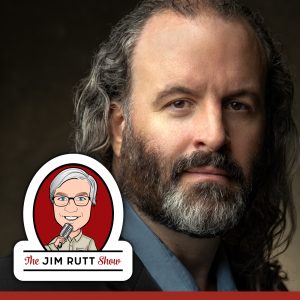
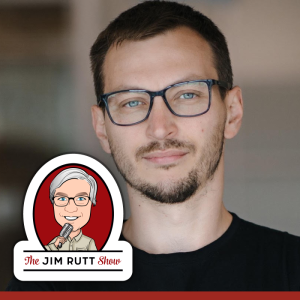
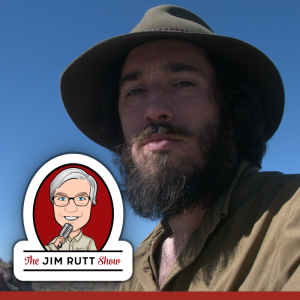
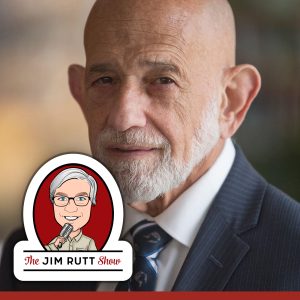
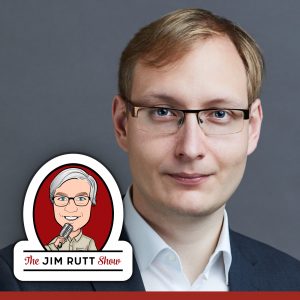
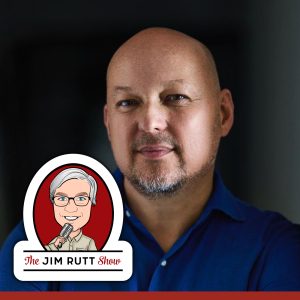

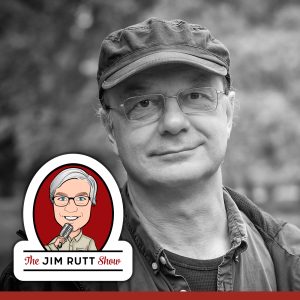
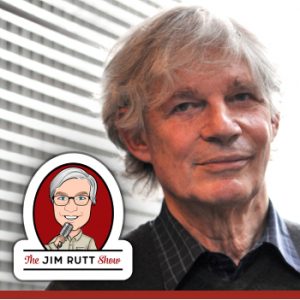
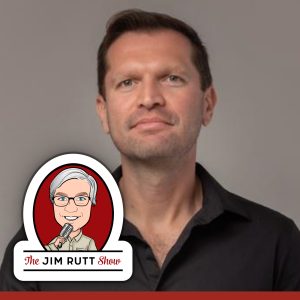
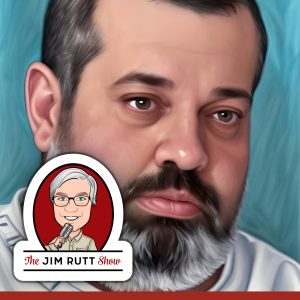
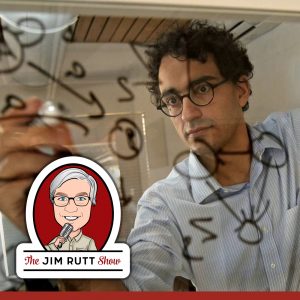
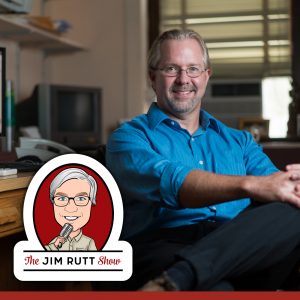
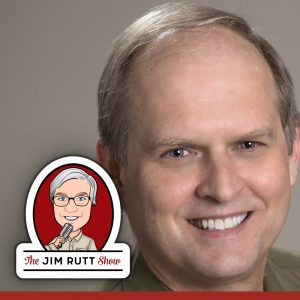
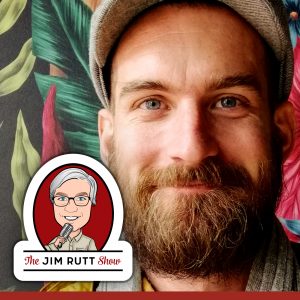
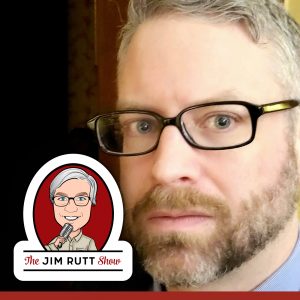
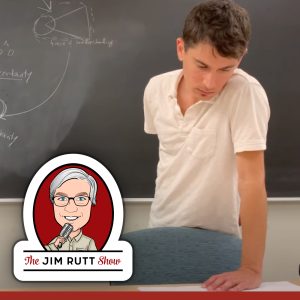
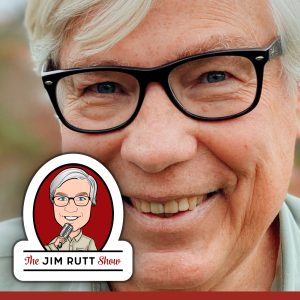
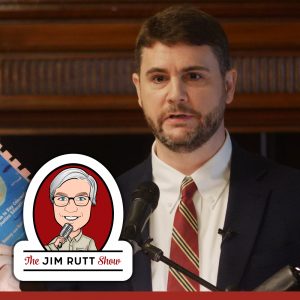
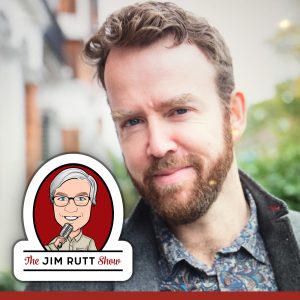


Hi! At this time, many have switched to online learning, but I don’t think this is a problem, on the contrary, this way you have more time for yourself. If you are still busy studying, you can always delegate some of the tasks to services like this https://myessayhelper.net/
excellent.
very interesting, but I stopped to listen, as the audio quality was so bad :-(